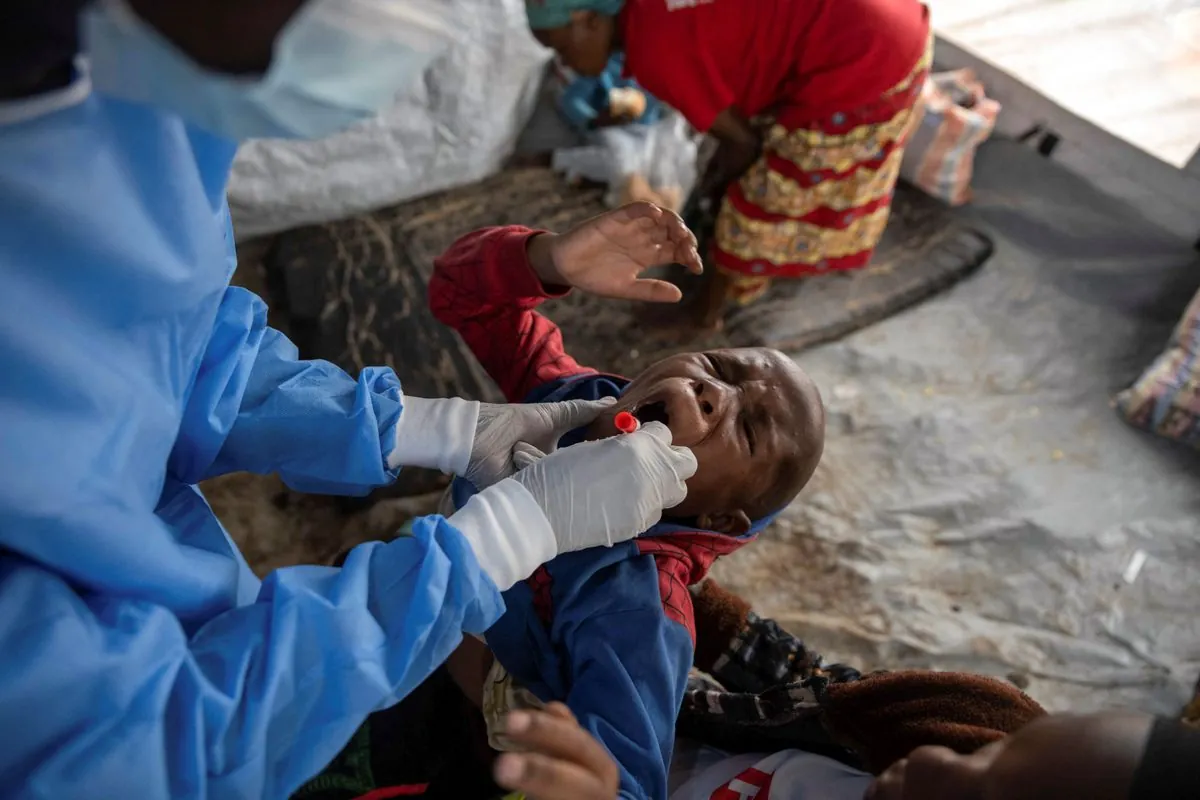Congo Battles Mpox Amid Conflict: New Strain Emerges in Crisis-Hit East
Congo grapples with mpox outbreaks, facing a new strain in conflict-ridden eastern regions. Limited healthcare access and vaccine shortages complicate efforts to contain the virus's spread amid ongoing challenges.

The Democratic Republic of Congo, Africa's second-largest country by area, is facing significant challenges in containing mpox outbreaks. With over 21,000 of the 25,093 confirmed and suspected cases in Africa this year, Congo bears the brunt of the continent's mpox burden. The situation has prompted the World Health Organization to declare the outbreaks in Congo and several other African nations a global health emergency.
Mpox, formerly known as monkeypox, is caused by a virus from the same family as smallpox but typically results in milder symptoms. The disease has been endemic in Congo for decades, highlighting the country's long-standing struggle with zoonotic diseases. In the global outbreak of 2022, mpox primarily spread through close physical contact, including sexual interactions.
A concerning development emerged in September 2023 when mpox spread to Congo's eastern province of South Kivu. Scientists identified a potentially more infectious strain in this region, which subsequently spread to neighboring North Kivu. These provinces, located approximately 2,000 kilometers from the capital Kinshasa, are grappling with escalating violence and a humanitarian crisis.
The eastern part of Congo faces unique challenges that complicate mpox containment efforts. Over 120 armed groups have been engaged in conflicts for years, leading to the displacement of millions. Dr. Musole Mulambamunva Robert, medical director of Kavumu hospital, described the situation as "truly a challenge," with facilities often treating up to four times their capacity.
Congo's healthcare system is under immense pressure, simultaneously battling other diseases such as cholera while struggling to provide basic necessities like clean water and soap to over 6 million displaced people. Mercy Muthee Lake of the International Federation of Red Cross and Red Crescent highlighted the difficulties in accessing remote communities due to unreliable infrastructure.
The vaccine situation in Congo remains critical. While 250,000 doses have arrived from the European Union and the United States, Congolese authorities estimate a need for around 3 million vaccines. Distribution to eastern Congo is expected to take weeks, further complicating containment efforts.
Emmanuel Lampaert, Congo representative for Doctors Without Borders, emphasized that vaccines are "an additional tool" but not the sole solution. He stressed the importance of case identification, patient isolation, and grassroots health education campaigns. However, implementing these measures is challenging in overcrowded living conditions where isolation is nearly impossible.
Critics have pointed out the stark contrast between the response to mpox and previous health crises like Ebola and COVID-19. Professor Ali Bulabula from the University of Kindu attributed this disparity to a lack of in-depth research and international interest, as mpox is still perceived as a localized tropical disease with limited global economic impact.
As Congo continues to battle mpox amidst ongoing conflicts and limited resources, the international community's support remains crucial. The country's rich biodiversity, including the world's second-largest rainforest, and its complex history of health challenges underscore the need for a comprehensive approach to address not only mpox but also the underlying factors contributing to its spread.
"Health authorities are up against it because it's such a complex area."
This ongoing health crisis in Congo serves as a reminder of the interconnectedness of global health issues and the importance of addressing them collectively, regardless of their perceived economic impact on Western nations.


































